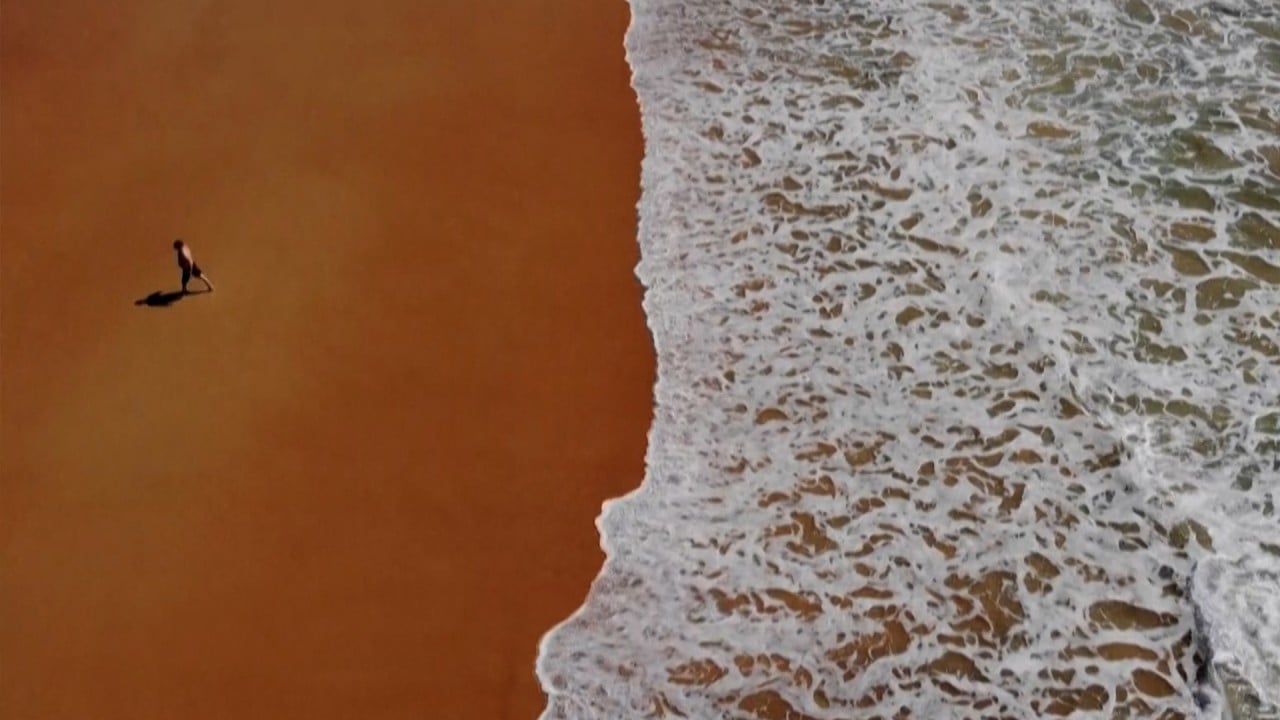
Thailand’s tricky consignment law leaves Hongkonger with US$120,000 hole in his pocket after Phuket developer goes under during Covid-19
- Hong Kong-based Reda Abouhanine paid US$120,000 upfront for a unit that cost US$150,000, and hoped to make a return on it in two years
- Award-winning Phuket developer Blue Horizons went under in mid-2020, leaving more than 300 buyers from around the world without their money or seaside homes
Abouhanine did his due diligence and concluded the developer looked professional – it even provided a live stream for investors to monitor the progress in construction. He paid an upfront sum of US$120,000 for a unit that cost US$150,000, an investment he hoped to make a return on in two years.
But construction came to a standstill in 2020 due to the coronavirus pandemic. And never resumed.
The award-winning Phuket-based developer, Blue Horizons Developers, liquidated in mid-2020, leaving more than 300 investors from around the world without their money, or the promised seaside resort homes.

“Everything is gone, my money that I worked hard to save. It’s an expensive lesson for me,” Abouhanine said. “If the Thai government cares about its image or tourism, they should finish the project and give us our keys.”
The investors will need to work with the new owner of the land, a situation Abouhanine feels hopeless about. In a limbo, he must accept that he is now the owner of a unit in an unfinished building. The Swiss, however, does hope that his story will serve as a cautionary tale for Hongkongers investing in off-plan property in Thailand.
Under Thailand’s consignment law, the consignor or the owner of the land can sell the land to the consignee or buyer. The title will be transferred to the consignee once the transaction is recorded at the land office. The distinct characteristic of the consignment is that the consignor has the right to buy back the land within an agreed period of time and price.
The law’s original intent was to let landowners and investors get a “mortgage” and was useful for landowners “who needed credit but did not have access to banking services, for example in rural areas,” said Somsak Chutisilp, IQI Global’s managing director in Thailand. IQI is an affiliated agent network of Malaysia-based proptech firm Juwai IQI.
“Until 2019, consignment was risky for borrowers, who were generally financially unsophisticated and all too often ended up losing their lands,” Somsak said. “In 2019, the government implemented a new consignment law to provide more protection to landowners by limiting interest rates and making other changes. These changes protect borrowers but make consignment less attractive to lenders.”

Foreigners have never been eligible to participate in consignment transactions, he said. Those who got in trouble under the law were “unsophisticated property owners who had few other resources” and borrowed “large sums of money”.
Panisa Suwanmatajarn of Thai law firm The Legal Co said that since Phuket is popular with foreigners and attractive parcels of land are limited and are available at very high cost, it is not unusual for developers with insufficient funds to purchase land under consignment, splurge on marketing to attract investors and use their down-payments to pay off the cost.
“Afterwards, the developer will seek a loan from a bank citing the number of reservations from investors,” Panisa said. “If sufficient funds are secured and they are used for the construction of the project, everything will go well. On the other hand, if anything goes wrong, the project will collapse.”
Thailand offers new visa-for-cash plan to help developers beat supply glut
The project Abouhanine invested in, Himalai Oceanfront Condominiums, is one of four major developments undertaken by Blue Horizon near Kamala Beach, along a strip on Phuket’s western coast known as the “Millionaire Mile.”
The Posh Twelve, another incomplete property project in Bangkok, saw more than 200 Hongkongers lose more than HK$4.8 million (US$611,481) in deposits when construction stopped in 2020 due to the pandemic, and the developer applied for liquidation.
Investors interested in buying Thai property should only consider completed projects, or off-plan projects that have received an environmental impact assessment (EIA) from the government, said Jason Choi, the Thailand project manager at overseas property investment specialist Raeon International.

“It is not easy to get an EIA approval, and the developer cannot start construction before getting the approval,” Choi said. “Investors should always go to the actual site to see for themselves, instead of relying only on images. Selecting bigger brand names, or developers preparing to be listed, is always a safer choice.”
“Trust is essential,” Morineaux said. “Also, always keep your logical business sense. Many tend to be mesmerised by the beauty of the landscape and forget the essential steps they would have taken in a large modern city.”
Another tip is to ask questions, such as how the plot was measured and the electricity and water sources, the legal set-up and the construction quality standards, he said. Finally, respecting the local rules is also critical, Morineaux added.
“Investing in Koh Samui is like choosing to invest in the international share market – it is riskier than purchasing bonds, yet much more rewarding provided you surround yourself with sound advisers,” Morineaux said. “The resale market is also less liquid.”
Overall, the Thai property market is likely to offer good investment opportunities to those who have done their homework, said Kashif Ansari, Juwai IQI’s co-founder and group CEO.
“Thailand is one of the most affordable destinations in the world for luxury property,” he said. “Luxury flats in the Thai market that are popular with foreigners start at about US$100,000. That compares favourably with other Southeast Asian destinations.”



